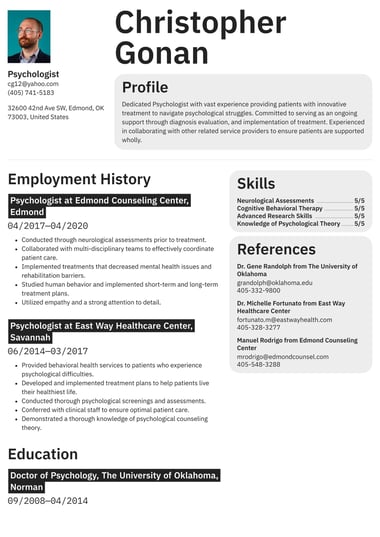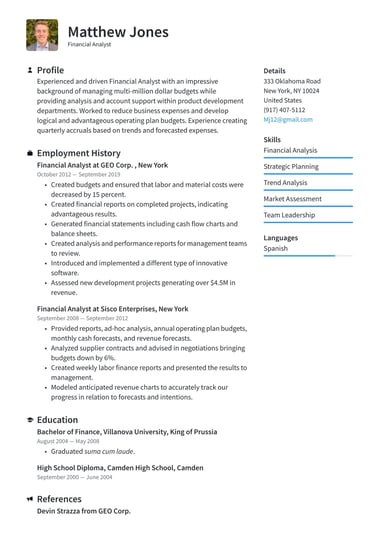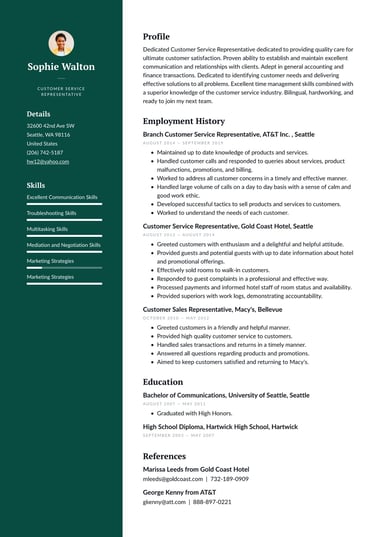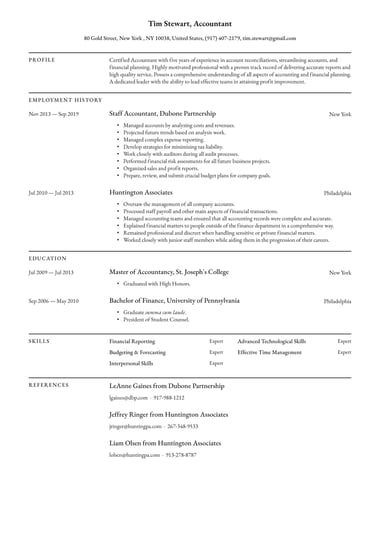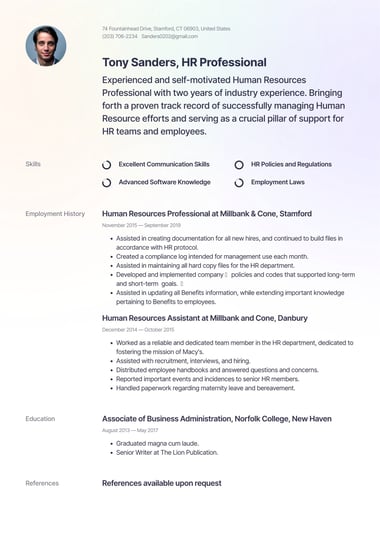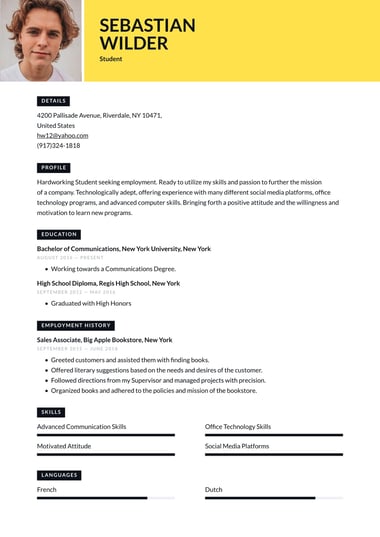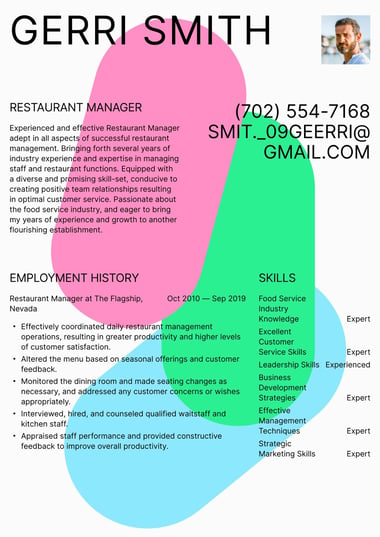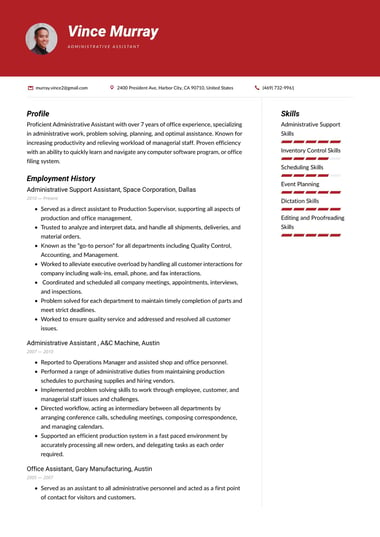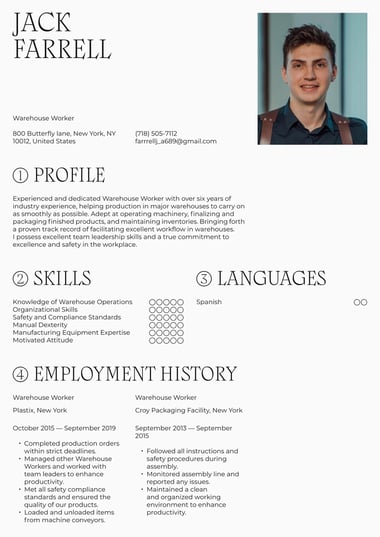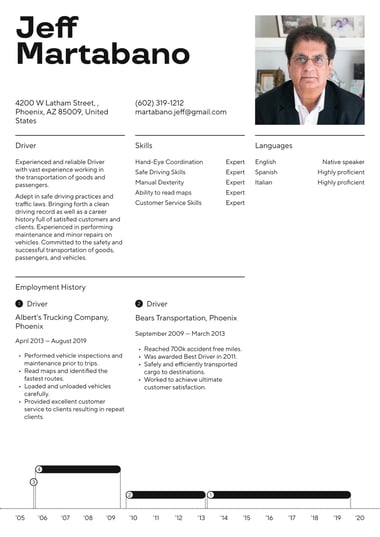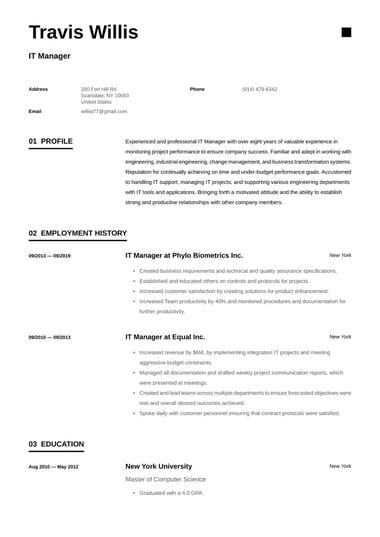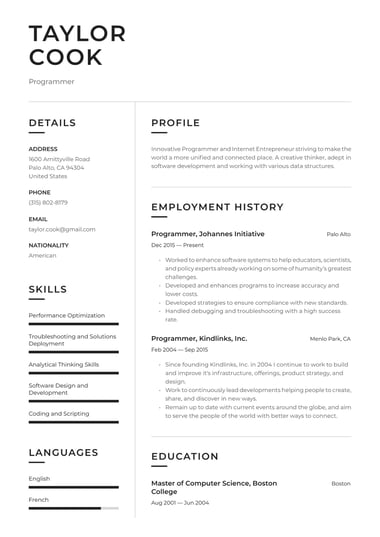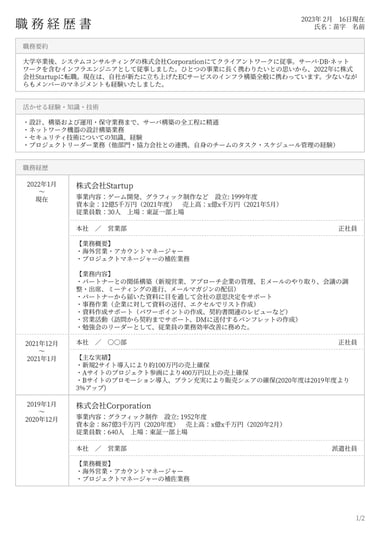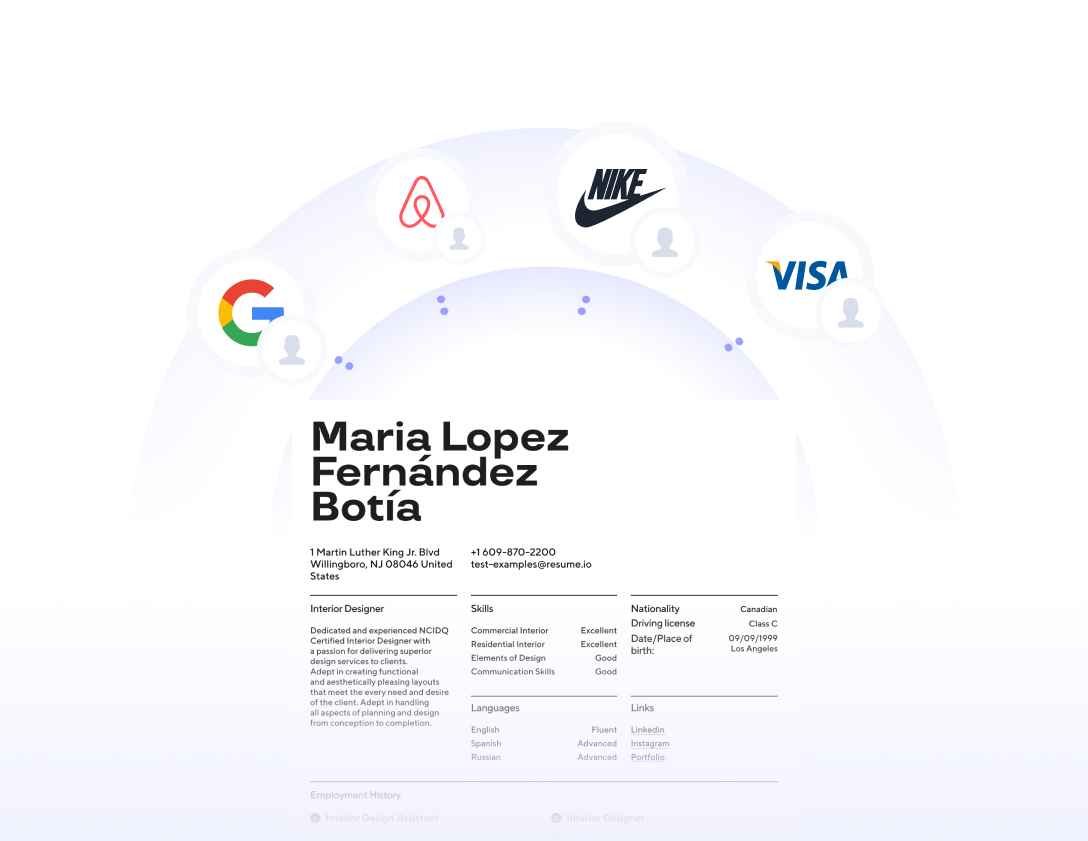Is it professional to have a picture on your resume?
While it’s not unprofessional to include your photo on your resume, in the US it generally isn’t done (with a few exceptions). It can be considered distracting, and since recruiters only spend a short amount of time scanning each resume they receive, you want to keep the focus on your skills and accomplishments, not your headshot.
It also takes up valuable space on your resume, which would be better utilized by including more information about your work experience.
Additionally, including a picture with your resume can leave you open to age discrimination. It’s illegal in the US, per the Age Discrimination in Employment Act (ADEA), but unfortunately, it still happens.
There are a few exceptions to this rule, however, as the social and cultural norms surrounding resumes vary from country to country. Some countries in Europe, Asia, Africa, or South America require a photo, but in most other places, it’s either illegal or being phased out.
You can include a photo in your LinkedIn profile (as well as your social media accounts), but unless you’re an actor, model, in real estate, a journalist, or in another creative field in the US where your appearance is important, leave it off.
Pros and cons of a picture resume
Although including a photo on your resume is generally discouraged in the US, it's a good idea to get a handle on both the pros and cons of including one so you can make an informed decision.
Pros
- Helps establish a personal connection: recruiters get to see the “face behind the brand.”
- Beneficial for creative roles: if your job relies at least partially on your appearance, including a photo can emphasize your visual identity.
- Common in countries outside the USA: if you’re writing a resume for a job overseas, where photo resumes are more accepted, it will keep you in the running for the position.
Cons
- Can lead to bias or discrimination in hiring: it’s better to let your experience speak for you, not your appearance.
- Irrelevant (and illegal): in many places, such as the US, UK, and Australia, it’s not standard practice to include your photo (with the noted exceptions).
- Not ATS-friendly: some Applicant Tracking Systems (ATS) may not process image-heavy resumes well.
Job-specific example picture resumes
For those fields where a photo is encouraged, you have a few options for formats that will allow you to include it without sacrificing space or providing a distraction for the hiring manager.
Vienna template
Best suited for creative professionals, like photographers, where a visual identity is key.
Madrid template
Useful in industries like real estate, where personal branding may help establish trust with clients.
Lisbon template
Ideal for roles like motion graphics artists, where showcasing creativity is important.
How to choose a photo for your picture resume
If you choose to include a picture on your resume, here are a few tips for selecting the one that will make the most impact.
- Use a professional headshot: the photo should show you in natural makeup, professional attire, good lighting, and your full face. Avoid “selfies” or casual, candid shots.
- Ensure the photo is high quality: whether it's being submitted online or in a hard copy, make sure your resume is high resolution and printed on a color printer.
- Don’t add distracting elements: the photo should be small, cropped, and not include props or elaborate backgrounds.
- Keep the photo up-to-date: make sure the picture looks like you now, not 10 years ago.
- Maintain a consistent brand: your resume photo should match your LinkedIn or online portfolio.
- Dress for success: if you’re in a conservative or corporate position, dress professionally, If you're in a creative role, a more casual look is fine.


